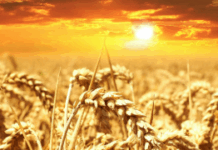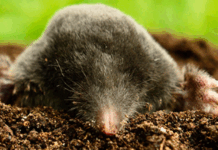Today’s News from the University of Kansas
From the Office of Public Affairs | http://www.news.ku.edu
Headlines
Artificial intelligence expert originates new theory for decision-making
LAWRENCE — How should people make decisions when the outcomes of their choices are uncertain, and the uncertainty is described by probability theory? That’s the question faced by Prakash Shenoy, a professor at the University of Kansas School of Business. He explores the idea in a new article that generalizes the theory of decision-making from probability to belief functions, published in the International Journal of Approximate Reasoning.
Eight KU students receive Undergraduate Research Awards for Fall
LAWRENCE — This fall, eight University of Kansas students will receive Undergraduate Research Awards (UGRAs). UGRA recipients are awarded a $1,000 scholarship as they work on mentored research and creative projects. The recipients are from Lawrence, Leawood, Ottawa and Overland Park.
Full stories below.
————————————————————————
Contact: Jon Niccum, KU News Service, 785-864-7633, jniccum@ku.edu
Artificial intelligence expert originates new theory for decision-making
LAWRENCE — How should people make decisions when the outcomes of their choices are uncertain, and the uncertainty is described by probability theory?
That’s the question faced by Prakash Shenoy, the Ronald G. Harper Distinguished Professor of Artificial Intelligence at the University of Kansas School of Business.
His answer can be found in the article “An Interval-Valued Utility Theory for Decision Making with Dempster-Shafer Belief Functions,” which appears in the September issue of the International Journal of Approximate Reasoning.
“People assume that you can always attach probabilities to uncertain events,” Shenoy said.
“But in real life, you never know what the probabilities are. You don’t know if it’s 50 percent or 60 percent. This is the essence of the theory of belief functions that Arthur Dempster and Glenn Shafer formulated in the 1970s.”
His article (co-written with Thierry Denoeux) generalizes the theory of decision-making from probability to belief functions.
“Probability decision theory is used for making any sort of high-stakes choice. Like should I accept a new job or a marriage proposal? Something high stakes. You wouldn’t need it for where to go for lunch,” he said.
“But in general, we never know what’s going to happen. You accept a job, but it may turn out you have a bad boss. There is a lot of uncertainty. You may have two job offers, so you have to decide two choices of what to accept. Then you do a pros and cons and attach probabilities to them. Probabilities are fine when you have lots of repetitions. But if it’s a one-time thing, you can’t ‘average your winnings.’”
One of the earliest answers to this question was provided by John von Neumann and Oskar Morgenstern in their 1947 book “Theory of Games and Economic Behavior,” Shenoy said. In 1961, Daniel Ellsberg showed via experiments that von Neumann and Morgenstern’s decision theory was not descriptive of human behavior, especially when there was ambiguity in representing uncertainty by probability theory.
In the late ’60s and mid-’70s, Arthur Dempster and Glenn Shafer (who was a former KU faculty member in both mathematics and business) formulated an uncertainty calculus called belief functions that was a generalization of probability theory, which was better able to represent ambiguity. However, there was no decision theory for making decisions when uncertainty was described by this theory.
Shenoy’s article provides the first formulation of a theory for decision-making when uncertainty is described by Dempster-Shafer’s belief functions that is analogous to the von Neumann-Morgenstern theory. And Shenoy said this theory is better able to explain Ellsberg’s experimental findings for choices under ambiguity.
The professor first approached Denoeux about this topic three years ago when both were speaking to doctoral students.
“(Denoeux) went through all the theories of decision-making with belief functions. Afterward I went and told him, ‘All of this you said is unsatisfactory.’ And he agreed with me! I said I’d like to come and work with him on this. So he sent me an invitation.”
Shenoy applied for a sabbatical, then headed to France in spring 2019, where he spent five months collaborating with Denoeux at the Université de Technologie de Compiègne.
“It was culturally very enriching and professionally rewarding,” he said.
Now in his 43rd year at KU, Shenoy remains an expert on uncertain reasoning and its applications to artificial intelligence. He is the inventor of Valuation-Based Systems (VBS), a mathematical architecture for knowledge representation and inference that includes many uncertainty calculi. His VBS architecture is currently used for multisensor fusion in ballistic missiles for the U.S. Department of Defense.
He hopes his latest research can benefit those who rely on belief functions.
“That includes a lot of people in the military, for example,” Shenoy said. “They like belief functions because of its flexibility, and they want to know how you make decisions. And if you’re going to reduce everything to probabilities at the end, why not use probabilities to begin with?”
-30-
————————————————————————
The official university Twitter account has changed to @UnivOfKansas.
Refollow @KUNews for KU News Service stories, discoveries and experts.
————————————————————————
Contact: Nicole Perry, Center for Undergraduate Research, 785-864-3391, nikkip@ku.edu, @ugresearch
Eight KU students receive Undergraduate Research Awards for fall
LAWRENCE — This fall, eight University of Kansas students will receive Undergraduate Research Awards (UGRAs). UGRA recipients are awarded a $1,000 scholarship as they work on mentored research and creative projects.
Students apply for UGRAs by writing a four-page research proposal under the guidance of a mentor. Faculty reviewers evaluate the applications based on the merit of the applicant’s proposal and a recommendation from the mentor.
“The exciting questions that these students are posing in their projects stand to make important contributions to their areas of study,” said Alison Olcott, director of the Center for Undergraduate Research and associate professor of geology. “I am so impressed with these students’ ability to keep pursuing their research and creative projects amidst all the challenges that this year has posed.”
The Center for Undergraduate Research is currently taking applications for the Spring 2021 UGRA competition. The deadline for student proposals will be Oct. 29. Online guidance and individual virtual advising appointments are available to help students prepare strong applications.
Students receiving awards for fall 2020 are listed below in alphabetical order along with year in school, hometown, project title, mentor and mentor’s department:
Ashmika Behere, a senior from Overland Park: “A Look into the Genetic Basis of Dewlap Pigmentation Pattern in Anolis Lizards,” mentored by Rich Glor, associate professor of ecology & evolutionary biology.
Monica Curiel, a senior from Lawrence: “Children’s Book: CataLena,” mentored by Barry Fitzgerald, professor of design.
Anna Davidson, a senior from Ottawa: “Analysis of Galaxy Mergers at High Redshift and Star Formation Shutoff,” mentored by Gregory Rudnick, professor of physics & astronomy.
Sam Glaser, a senior from Overland Park: “Role of the Coronavirus Macrodomain Highly-Conserved GIF Loop in Virus Replication,” mentored by Tony Fehr, assistant professor of molecular biosciences.
Randi Hutto, a senior from Lawrence: “Social vs. Non-Social Book Preference in Children with Autism Spectrum Disorder,” mentored by Meghan Davidson, assistant professor of speech-language-hearing.
Manjit Pant, a senior from Leawood: “Design and Fabrication of Solar Coin Cells by Spray Pyrolysis Technique,” mentored by Lin Liu, associate professor of mechanical engineering.
Abigal Percich, a senior from Lawrence: “Sediment Source Assessment Along an Urban to Rural Transition Using Sediment Fingerprint Modeling,” mentored by Admin Husic, assistant professor of civil, environmental & architectural engineering.
Carine Tabak, a senior from Lawrence: “Is Aggression Correlated Between Male and Female Drosophila melanogaster?,” mentored by Jennifer Gleason, associate professor of ecology & evolutionary biology.
-30-
————————————————————————
KU News Service
1450 Jayhawk Blvd.
Lawrence KS 66045
Phone: 785-864-3256
Fax: 785-864-3339
Erinn Barcomb-Peterson, director of news and media relations, ebp@ku.edu
Today’s News is a free service from the Office of Public Affairs



